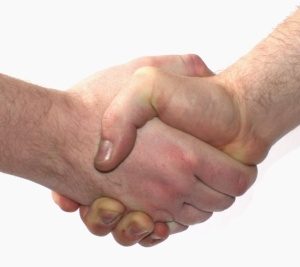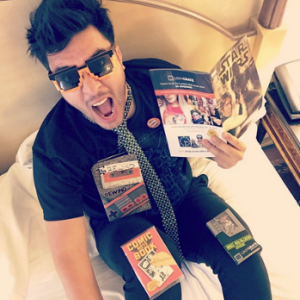How to tell if you are a personality hire
On social media, workers are dividing themselves into ‘technical hires’ and ‘personality hires.’ Which one are you?
Hiring managers are looking for many things in future employees: practical skills, efficient work ethic, a goal-oriented mindset. But for some, personality defines a good worker.
On platforms like TikTok and X, users are obsessively debating the topic of “personality hires” and distinguishing between the “technical hire” and the “personality hire.” The technical hire is there to put in the elbow grease and get the job done; the personality hire keeps morale high.
So, is the idea of a personality hire just a TikTok trend or an actual hiring tactic? Experts tell Fast Company that personality hires are a very real phenomenon. Here’s how to tell if you are a personality hire yourself—and why being a personality hire can actually improve your professional prospects.
What is a personality hire?
When scouting for new hires, employers typically see a good personality as a significant strength. A personality hire often has a can-do attitude, a willingness to make the office more social, and just a warm presence. Ultimately, the goal of hiring a candidate based on their personality is to build the strength and mood of a team.
“A personality hire is someone whose strengths are their soft skills, their ability to enhance relationships with their clients, their customers, and their coworkers,” says Vicki Salemi, career expert at Monster.
Demand for personality hires can be highly dependent on industry and workplace environment. A sense of confidence and charm may be necessary for sales and client-facing positions, where employees are tasked with building the spirit of their customers, not just their coworkers. Jennifer Morehead, CEO of consulting service Flex HR, notes that a positive personality, and emotional intelligence, can be especially crucial for hybrid-work environments.
“Sometimes, that shy, introverted person can get a little bit lost in a virtual setting,” Morehead says. “That extroverted person can really stand out and do a good job, especially with clients on a Zoom call.”
Still, starkly separating the world into personality hires and technical hires is often an overgeneralization, says Salemi. It’s the overlap between the two, being the confident and joyful employee who has the hard skills to back it up, that makes for the ideal worker. Salemi calls this the “sweet spot.”
“My word of caution to hiring managers is don’t only look for the personality,” Salemi says. “You need to make sure that candidate has the skills and abilities and experiences that transfer to convince you that they can learn and be upskilled on the job.”
How do you know if you’re a personality hire?
Decoding whether you’re a personality hire may be a difficult task. There’s no way to know what a recruiter or HR manager is thinking when they onboard a new employee. Still, there are signs. For those with strong soft skills, like teamwork and communication, your personality may have been a perk in the interview process.

Angela Tait, founder and talent strategist at Tait Consulting, believes that just about anyone can be a personality hire. With some hard work and some time, those attributes can be developed.
“I think [soft skills] could be taught, especially if you’re newer in your career,” says Tait. “With practice, workers are able to be a better team player or communicate more effectively.”
A look around the office may also offer some helpful insights. Client- and customer-facing positions are highly keen on personality hires, as well as roles that engage in frequent team-based projects. It may even come down to company culture. For instance, personality hires often thrive in startup office cultures, says Tait.
Of course, whether or not a worker is a personality hire is often a matter of perspective. A recent Monster survey found that 48% of workers self-identified as personality hires.
Morehead adds that being a personality hire is often a known skill, not an incidental attribute: “Those types of personalities are pretty self-aware that they have that as a valuable skill.”
ABOUT THE AUTHOR
(4)



